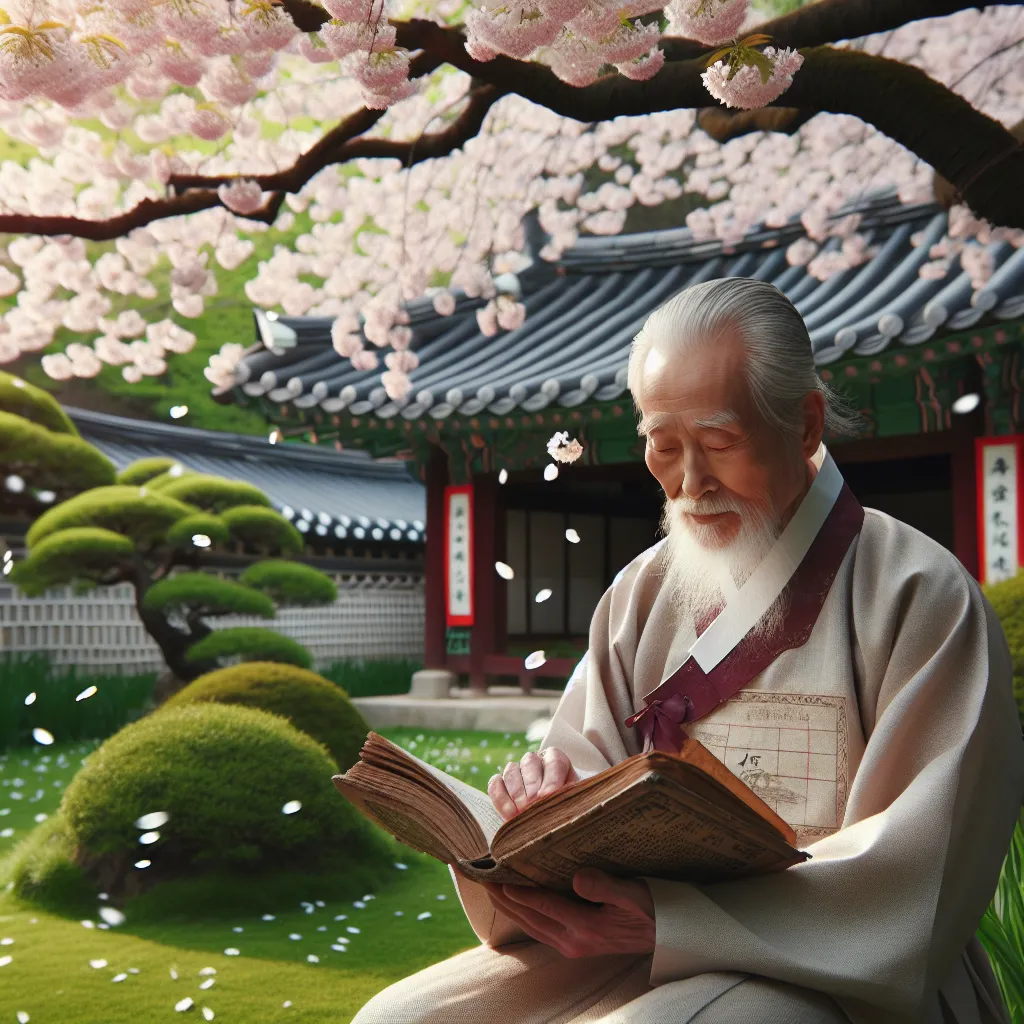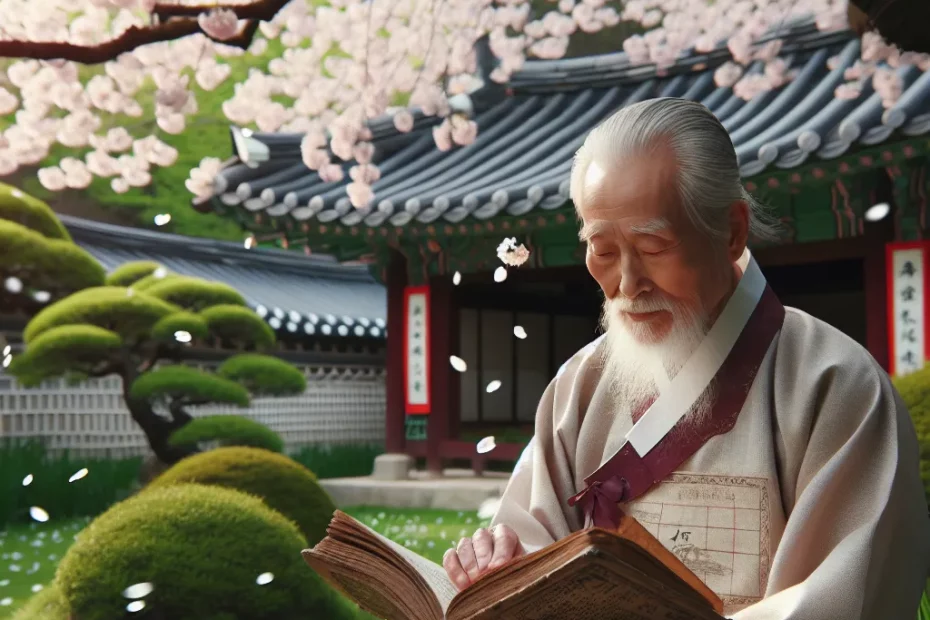Confucianism has long been a guiding philosophy in Korean society, shaping its social structure, values, and educational system. The profound influence of Confucian ideals is evident in every aspect of Korean life, from family relationships to government institutions. As we delve into the impact of Confucianism on Korean society, we uncover a rich tapestry of tradition and modernity intertwined. Despite facing challenges in adapting to a rapidly changing society, the enduring legacy of Confucianism continues to play a pivotal role in shaping the collective identity of the Korean people.

Confucianism’s Influence on Korean Social Structure
In examining the intricate tapestry of Korean society, one cannot overlook the profound impact of Confucianism on its social structure. Rooted deeply in the historical fabric of the nation, Confucian ideals have served as a guiding philosophy shaping the norms, values, and interactions within Korean communities.
The Hierarchical Nature of Confucian Teachings
Confucianism, with its emphasis on hierarchy, filial piety, and respect for authority, has played a pivotal role in shaping the social relationships and structures in Korea. The hierarchical nature of Confucian teachings has led to a clear delineation of roles and responsibilities within Korean society, with an emphasis on deference to elders and those in positions of authority.
Influence on Family Dynamics
Family, as the cornerstone of Korean society, is deeply influenced by Confucian principles. The concept of filial piety, or “hyo” in Korean, underscores the importance of respect for parents and ancestors. This reverence for familial relationships extends beyond the nuclear family to include ancestors, shaping the dynamics of kinship and social obligations.
Impact on Education and Scholarship
Moreover, Confucianism’s emphasis on education and scholarship has had a lasting impact on the social structure of Korea. The pursuit of knowledge and intellectual development is highly valued in Korean society, with a strong emphasis on academic achievement and the cultivation of moral character. This focus on education has contributed to the establishment of a meritocratic system, where individuals are judged based on their abilities and achievements.
Influence on Workplace Dynamics
In addition to shaping familial and educational structures, Confucianism has also influenced the workplace dynamics in Korea. The principles of loyalty, harmony, and mutual respect advocated by Confucianism are reflected in the emphasis on teamwork, consensus-building, and interpersonal relationships in Korean business culture. This collective orientation is evident in decision-making processes, where consensus and group harmony often take precedence over individual opinions.
Impact on Political Culture
Furthermore, the enduring influence of Confucianism can be seen in the political realm as well. The emphasis on benevolent leadership, ethical governance, and social harmony espoused by Confucian teachings has shaped the political culture in Korea, with an emphasis on public service, moral leadership, and the greater good of society.
In conclusion, the impact of Confucianism on Korean social structure is profound and far-reaching. From family relationships to educational institutions, from workplace dynamics to political governance, Confucian ideals continue to shape the norms, values, and interactions within Korean society. The enduring legacy of Confucianism serves as a guiding philosophy, providing a moral compass for individuals and communities in navigating the complexities of modern Korean society.
Values and Ethics Embedded in Korean Culture
In Korean society, the influence of Confucianism has been deeply rooted for centuries, shaping the values and ethics that guide the behavior and interactions of individuals. Confucian principles such as filial piety, respect for elders, and the importance of harmony have played a significant role in shaping the cultural norms and moral compass of the Korean people.
Emphasis on Hierarchy and Authority
One of the key values embedded in Korean culture is the emphasis on respect for hierarchy and authority. This can be seen in various aspects of society, from the way people address others based on their age and status to the importance placed on following rules and traditions. The Confucian value of respecting elders and those in positions of authority is ingrained in Korean social interactions and is reflected in the language used to address others.
Collectivism and Group Harmony
Another important ethical principle in Korean culture is the concept of collectivism and group harmony. This value emphasizes the importance of putting the needs of the group above individual desires and working together for the common good. This can be observed in the strong sense of community and cooperation in Korean society, where individuals often prioritize the well-being of the group over personal gain.
Filial Piety and Family Bonds
Additionally, the value of filial piety, or honoring one’s parents and ancestors, is a central tenet of Korean ethics. This value is deeply rooted in Confucian teachings and is reflected in the strong family bonds and respect for elders that are prevalent in Korean culture. The concept of filial piety extends beyond just one’s immediate family to include reverence for ancestors and a sense of duty to uphold family traditions.
Importance of Education and Self-Improvement
Ethics in Korean culture also encompass the importance of education and self-improvement. The value placed on academic achievement and continuous learning stems from Confucian ideals that emphasize the cultivation of one’s virtues and knowledge. This focus on education as a means of personal development and social advancement is a cornerstone of Korean society and is reflected in the high value placed on academic success.
In conclusion, the values and ethics embedded in Korean culture, influenced by Confucianism, play a crucial role in shaping the behaviors and beliefs of individuals in Korean society. These principles of respect, collectivism, filial piety, and education form the foundation of Korean cultural identity and continue to guide the interactions and relationships of the Korean people.
Educational System Shaped by Confucian Ideals
In examining the educational system of South Korea, one cannot overlook the profound influence of Confucian ideals that have shaped the foundation of learning and academic pursuit in the country. Confucianism, with its emphasis on respect for authority, filial piety, and the importance of education, has played a pivotal role in molding the educational landscape of Korea for centuries.
Confucian Values in Education
Confucianism places a high value on education as a means to cultivate moral character and achieve social harmony. This emphasis on learning and self-improvement has been deeply ingrained in Korean society, leading to a strong focus on academic achievement and rigorous study habits. The traditional Confucian values of diligence, discipline, and respect for teachers are still evident in the modern Korean educational system.
Impact on Schooling
The influence of Confucianism can be seen in various aspects of the Korean educational system, from the structure of schools to the attitudes towards learning. The hierarchical relationship between teachers and students, rooted in Confucian principles of respect for authority, is a defining feature of Korean classrooms. Students are expected to show deference to their teachers and work diligently to uphold the values of scholarship and moral integrity.
Curriculum and Examinations
The emphasis on academic excellence in Korean schools is reflected in the rigorous curriculum and competitive entrance examinations. The focus on memorization and rote learning, a legacy of Confucian educational practices, continues to be a prominent feature of the Korean schooling system. Students are expected to master a wide range of subjects and excel in standardized tests to secure a place in prestigious universities.
Higher Education and Social Mobility
Confucian ideals have also influenced the perception of education as a pathway to social mobility and success in Korean society. Attending a top university is often seen as a key to securing a good job and achieving financial stability. The pressure to excel academically and gain admission to elite institutions is a reflection of the Confucian emphasis on the value of education in shaping one’s future prospects.
In conclusion, the educational system in South Korea has been profoundly shaped by Confucian ideals that emphasize the importance of learning, discipline, and respect for authority. These values continue to influence the attitudes towards education and academic achievement in Korean society, highlighting the enduring legacy of Confucianism in shaping the educational landscape of the country.
Challenges and Modern Adaptations amid Changing Society
In the dynamic landscape of Korean society, the influence of Confucianism has been a guiding philosophy for centuries, shaping the values, norms, and behaviors of the people. However, as society evolves and faces new challenges, the traditional principles of Confucianism are being reexamined and adapted to meet the needs of the modern world. 🌟
Key Challenges in Korean Society
One of the key challenges faced by Korean society is the rapid pace of technological advancement and globalization. As the world becomes more interconnected, traditional Confucian values such as hierarchy, filial piety, and respect for authority are being challenged. The younger generation, in particular, is questioning these age-old norms and seeking new ways to define their identity in a rapidly changing world. 🚀
Moreover, the traditional gender roles prescribed by Confucianism are being reevaluated in light of the push for gender equality and women’s empowerment. While Confucianism has long emphasized the importance of family and the role of women as caretakers, modern Korean society is witnessing a shift towards more gender-inclusive policies and practices. This shift is not without its challenges, as it requires a reexamination of deeply ingrained societal norms and values. 💪
Modern Adaptations in Korean Society
In response to these challenges, Korean society is undergoing a process of modern adaptation, where traditional Confucian values are being reinterpreted to align with contemporary realities. For example, concepts such as “jeong” (deep emotional bonds) and “han” (a sense of unresolved resentment) are being redefined to encompass a broader range of human experiences beyond the traditional family unit. This modern interpretation allows for a more inclusive and diverse understanding of human relationships in today’s society. 🌈
Furthermore, the education system in Korea, deeply rooted in Confucian principles, is also undergoing significant changes to meet the demands of the 21st century. The emphasis on rote memorization and standardized testing is being reevaluated in favor of a more holistic and creative approach to learning. This shift reflects a growing recognition of the need for critical thinking, problem-solving skills, and adaptability in the face of an ever-changing world. 📚
In conclusion, while the influence of Confucianism remains strong in Korean society, the challenges of the modern world require a process of continuous adaptation and reinterpretation of traditional values. By embracing change and innovation, Korean society can navigate the complexities of the 21st century while staying true to its rich cultural heritage. 🌏
Confucianism has undeniably left a profound impact on Korean society, shaping its social structure, values, ethics, educational system, and more. As a guiding philosophy, it has influenced the way Koreans interact with one another, prioritize education, and uphold traditional values. Despite the challenges and the need for modern adaptations in today’s rapidly changing society, the enduring influence of Confucian ideals continues to provide a moral compass for many Koreans. Its legacy serves as a reminder of the importance of respect, filial piety, and harmony in both personal and communal relationships. In essence, Confucianism remains a cornerstone of Korean culture, reflecting a deep-rooted philosophy that continues to resonate in various aspects of Korean life.
